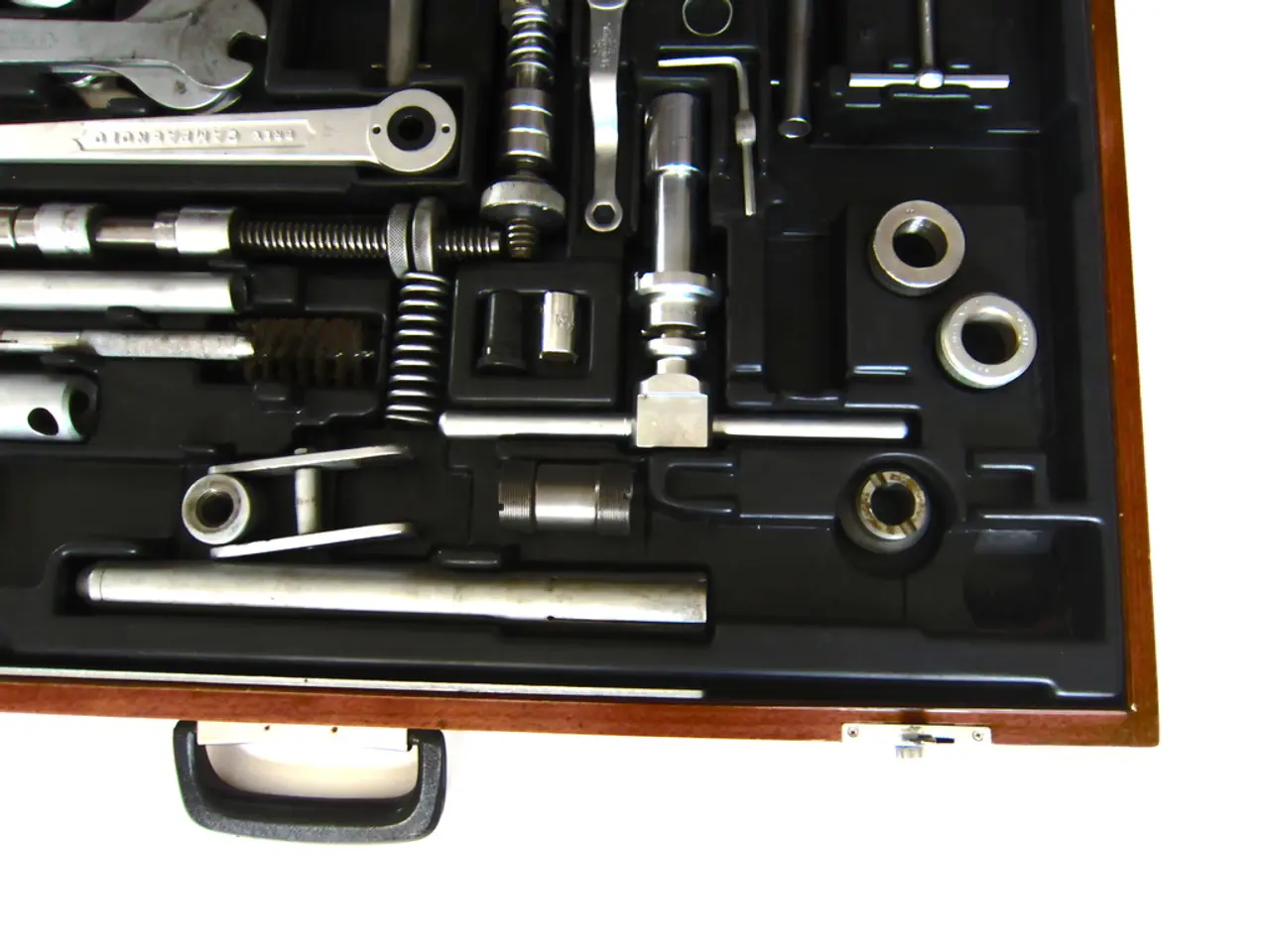Future Prospects of Germany Competing with China in Battery Technology?
In the bustling world of electric vehicle (EV) manufacturing, German battery providers are making a significant mark, aiming to challenge China's dominance in the industry. According to battery experts like Ines Miller, these companies are leveraging key innovations and strategic approaches to boost competitiveness, focusing particularly on cost reduction and recycling.
At the forefront of this competition is BMW, investing in highly automated, large-scale production of next-generation electric drives and batteries. With facilities in multiple locations, including Germany, Hungary, the US, China, and Mexico, BMW's global production network supports economies of scale and supply chain resilience. The launch of the sixth-generation electric drive, expected in late 2025, reflects ongoing technological innovation oriented towards improved performance and efficiency [1].
German startups are also leading the way in battery recycling technology. Cylib, for instance, has developed a water-based hydrometallurgical process to recover high-purity lithium hydroxide from used EV batteries, addressing raw material shortages and reducing dependency on raw lithium imports. This recycling approach cuts battery production costs and supports Germany's commitment to closing the battery material supply loop while maintaining strict purity standards required for EV battery manufacturing [2].
Collaboration with partners like Syensqo and Tenova Advanced Technologies also plays a crucial role in cost reduction. These partnerships enhance solvent extraction and purification processes, increasing lithium recovery efficiency and battery-grade material purity [2].
Strategic flexibility and a multi-technology focus are other key strategies German providers are adopting. Rather than relying solely on one approach, these companies aim to adapt to market changes and regulatory environments efficiently, ensuring future-proof mobility solutions [1].
Modern facilities for the production of lithium-ion battery cells, such as the concept factory showcased by Bernhard Bruhn from Dürr and Christian Lisiecki from GROB, are further evidence of Germany's commitment to the EV market. The demand for batteries is expected to surpass 1 Terawatt-hour in 2024, with e-mobility accounting for around 950 GWh, a 25% increase from the previous year [3].
As the industry continues to grow, companies like PowerCo are aiming not just to catch up with China but to become the technological leaders in the long run. Lessons from past failures, such as the Northvolt bankruptcy and Volkswagen's plans to compete with Chinese battery giants, are being carefully considered [4].
Sebastian Wolf, production manager at PowerCo, suggests less bureaucracy, particularly in fire safety, as a means to make Germany more competitive. Dr. Tobias Knecht from Henkel Adhesive Technologies demonstrated how modern batteries in electric vehicles can be glued and subsequently unglued in seconds, further showcasing the industry's focus on innovation [5].
The Battery Show 2025, held in Stuttgart from June 3rd to 5th, 20XX, provided a platform for these advancements to be showcased. The website report from the event is now available for viewing at youtube.com.
One of the most significant developments in the industry is the opening of the recycling plant of BASF in Schwarzheide, Brandenburg. This plant, presented by Philipp Wenz, is a testament to Germany's commitment to a circular economy and sustainability in the EV market [6].
In the face of China's increasing dominance in the battery market and supply chains, German providers are combining advanced manufacturing technologies, global production networks, and innovative recycling technologies to target cost reduction through circular raw material use and scale, while also addressing sustainability and supply chain security in the competitive EV market [1][2].
References: [1] BMW Group. (n.d.). E-Drive production. Retrieved from https://www.bmwgroup.com/en/innovation/electromobility/e-drive-production.html [2] Cylib GmbH. (n.d.). Cylib technology. Retrieved from https://www.cylib.de/technology/ [3] Statista. (2021). Global electric vehicle battery demand. Retrieved from https://www.statista.com/statistics/1087950/global-electric-vehicle-battery-demand/ [4] PowerCo. (n.d.). Our mission. Retrieved from https://powerco.de/en/mission/ [5] Henkel Adhesive Technologies. (n.d.). Battery bonding. Retrieved from https://www.henkel-adhesives.com/en/our-offer/industries/automotive/battery-electric-vehicles/battery-bonding.html [6] BASF SE. (n.d.). Recycling plant Schwarzheide. Retrieved from https://www.basf.com/de/de/unternehmen/standorte/deutschland/standorte/schwarzheide/recycling-plant-schwarzheide.html
1.utilizing technology advancements in battery production, such as automated large-scale manufacturing and solvent extraction processes, BMW and German startups like Cylib aim to reduce costs, enhance efficiency, and rival competitors in the EV market, including Chinese battery giants.
2.In line with the commitment to sustainability and a circular economy, German providers, including PowerCo and BASF, are focusing on recycling technology, such as water-based hydrometallurgical processes, to reduce dependency on raw lithium imports, lower production costs, and ensure a resilient supply chain in the sports sphere of electric vehicle manufacturing.




